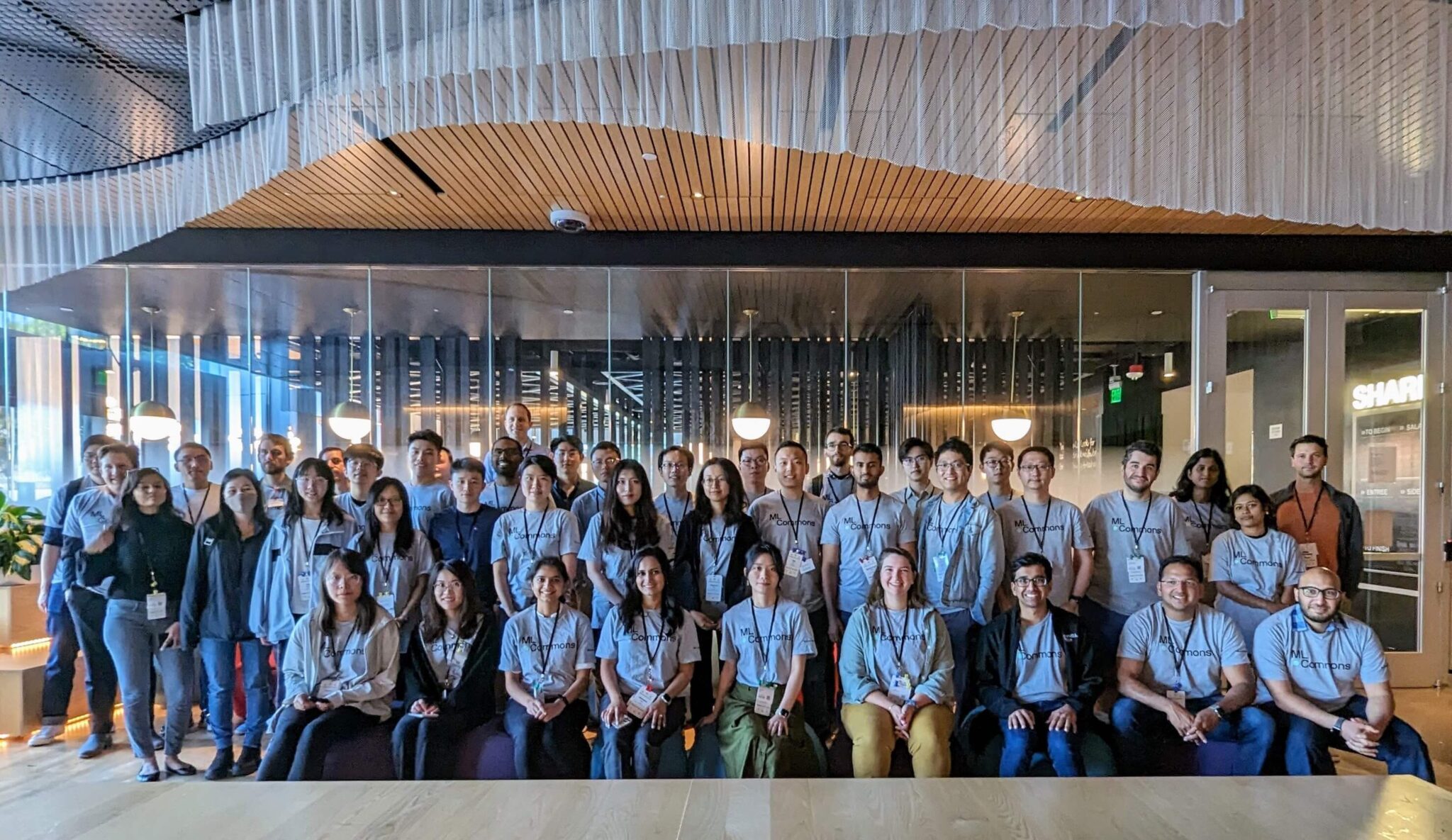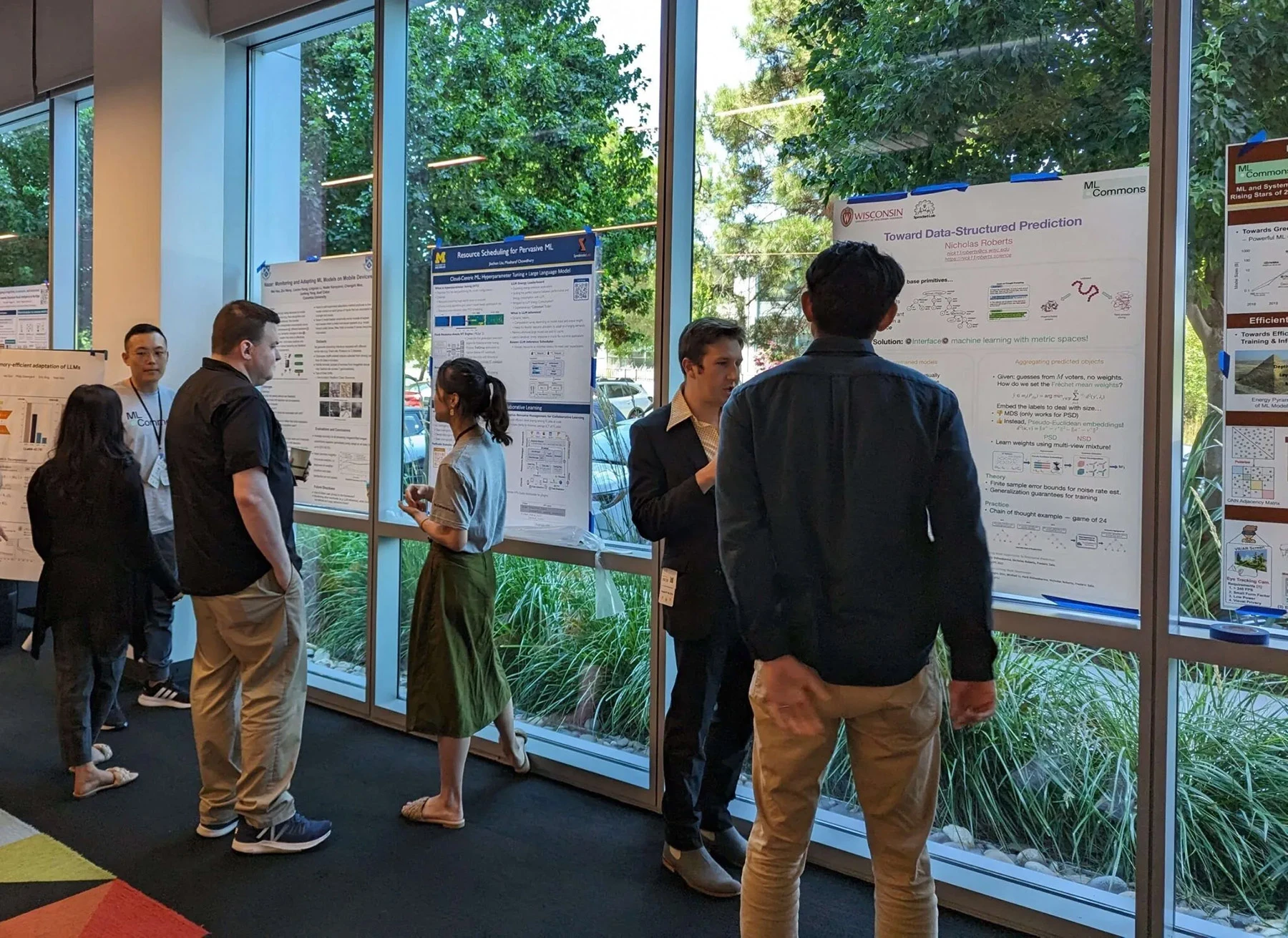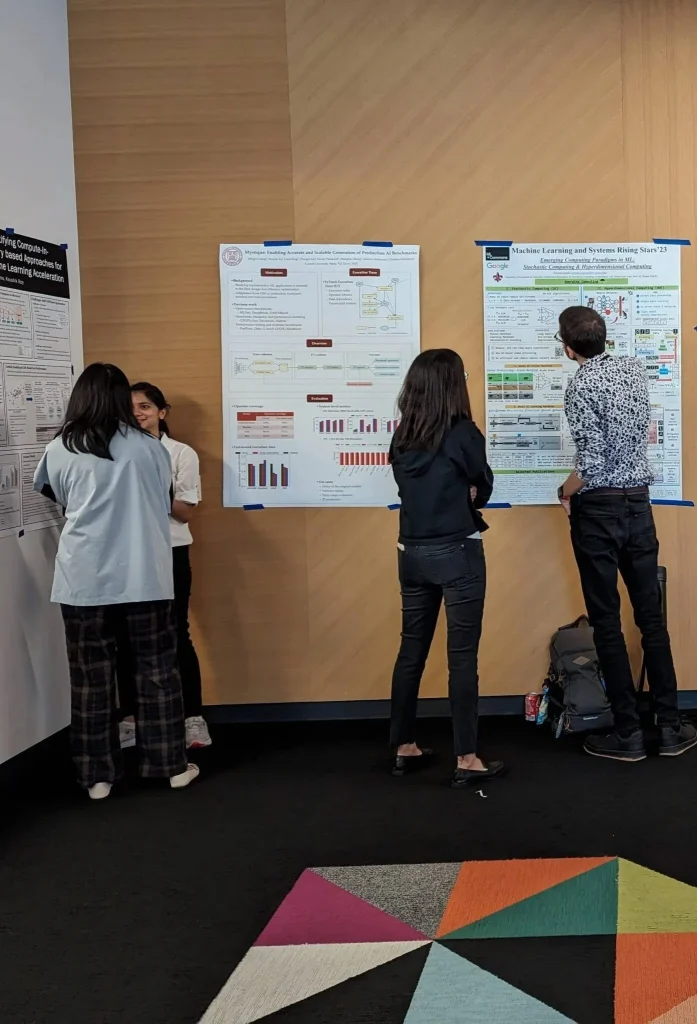Akanksha Atrey
Research Scientist at Nokia Bell Labs
The MLCommons ML and Systems Rising Stars is an initiative designed to identify a cohort of early-to-late-stage and recently graduated PhD students, as well as other researchers with a relevant background, to develop community, foster research and career growth, enable collaborations, and discuss career opportunities among the rising generation of researchers at intersections of machine learning and systems.

Applications are now closed!
Award Notifications Monday, February 28, 2025
Workshop Dates May 8-9, 2025

Given the strong, collective interest in the intersection of machine learning and systems, we aim to foster collaboration across academia and industry. Providing connections, resources, and equitable access to such collaboration is a crucial step to building community.

We aim to facilitate research and career growth of rising stars at intersections of machine learning and systems. This effort includes providing opportunities for recipients to explore research opportunities with invited panelists and speakers from industry and academia, necessary skills building sessions and networking sessions, and highlighting career opportunities across academic, industry, and other settings.

A core focus of this initiative is to identify and include a diverse range of ML and Systems researchers in the Rising Stars cohort with particular attention to historically underrepresented gender, racial, geographic, socioeconomic, and other vectors of identity in computing and technology.
The ML and Systems Rising Stars program is open to all graduate students and post-doctoral associates (in academic and industry institutions) with research backgrounds and/or interests in the machine learning and systems area. There are no strict guidelines for what year of graduate study applicants should be. Participants interested in both academic and industry career paths are welcome to apply. We strongly encourage individuals from historically marginalized and underrepresented backgrounds, including gender, racial, geographic, socioeconomic, and other vectors of identity in computing and technology, to apply.
Research Scientist at Nokia Bell Labs
Assistant Professor at University of Louisiana at Lafayette
Assistant Professor at Cornell Tech
Assistant Professor at MBZUAI
SMTS Graphics and ML at AMD
Assistant Professor at Amherst College